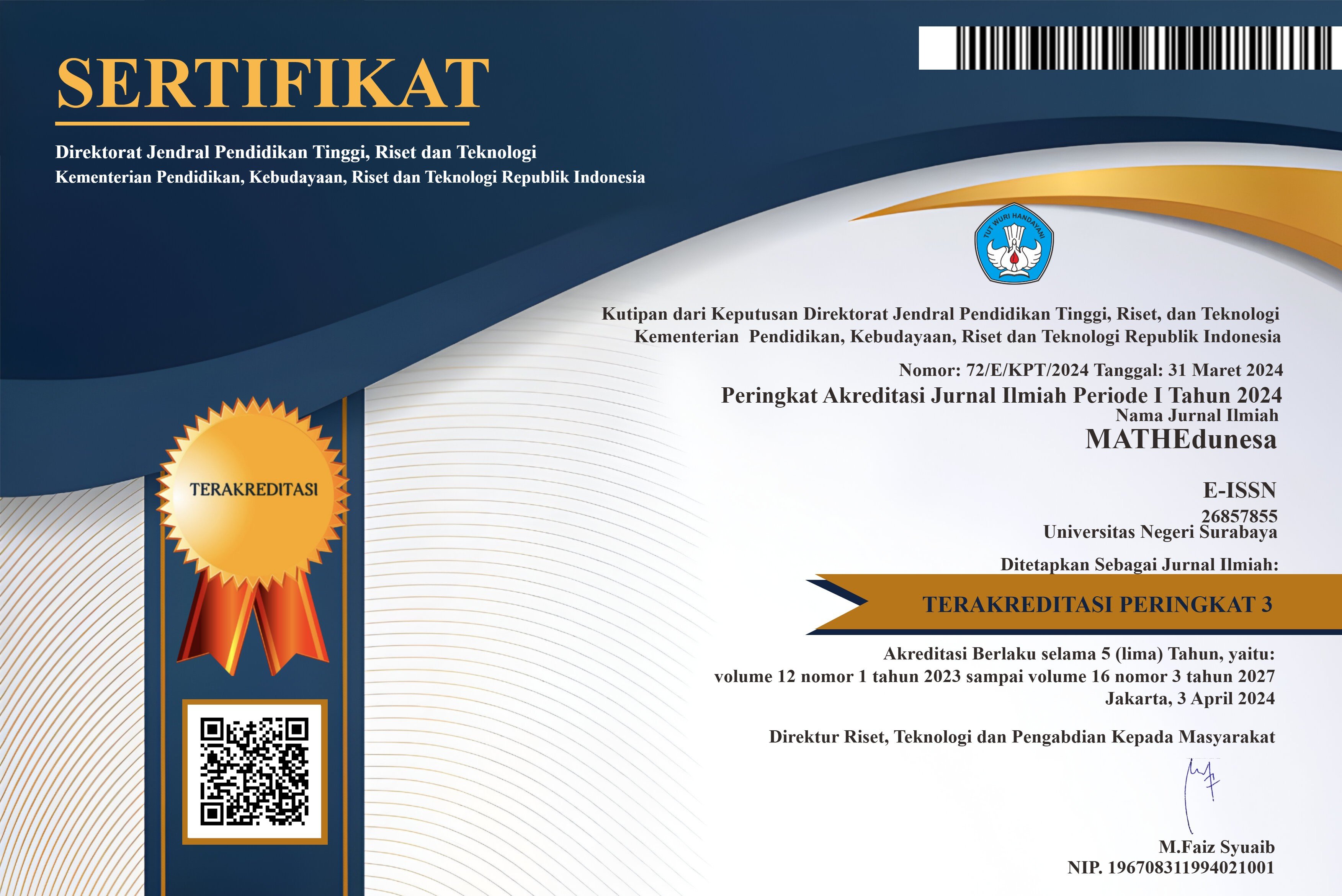Pengaruh Gamifikasi terhadap Hasil Belajar Matematika Siswa di Indonesia: Studi Meta-Analisis
Abstract
In 2015 Indonesia was ranked 44th out of 49 countries that took part in the international assessment by TIMSS. The low student learning outcomes are influenced by several factors, one of which is the lack of teacher innovation in using learning media, this results in students feeling bored in following the learning process in class. To overcome this, this can be done by utilizing fun learning media, one of which is using gamification. This research aims to determine the magnitude of the influence of gamification on student mathematics learning outcomes in Indonesia as a whole, based on the type of gamification and level of education. This research uses a quantitative approach and a meta-analysis type of research. The instrument used was a coding sheet containing data from the control group and experimental group in the form of sample size, average and standard deviation obtained from studies selected using the Publish or Perish application with the Google Scholar database. In calculating the effect size using the OpenMEE application. The results of the meta-analysis research obtained 21 studies which showed that the use of gamification had an overall effect on student mathematics learning outcomes in Indonesia of 1.054. Meanwhile, based on the type of gamification used, Wordwall has the greatest influence on improving mathematics learning outcomes with an average effect-size value of 1.818. Then based on educational level, gamification is more effectively used at elementary school level with an average of 1.381. The results of this research are useful for educators in choosing appropriate gamification-based learning media to improve students' mathematics learning outcomes.
Downloads
Downloads
Published
Issue
Section
 Abstract views: 417
,
Abstract views: 417
, PDF Downloads: 462
PDF Downloads: 462




